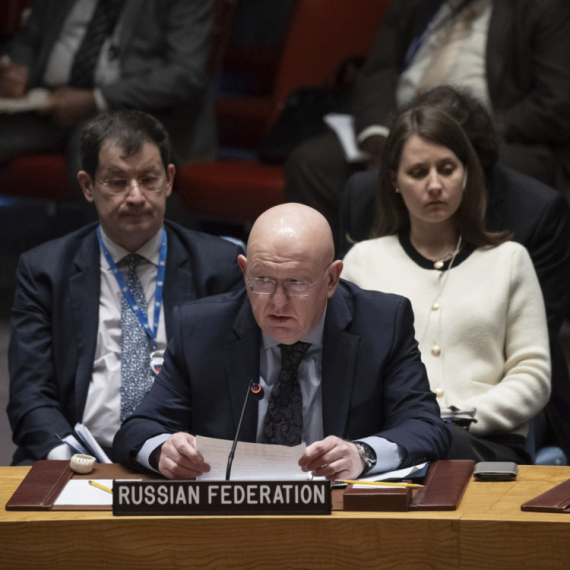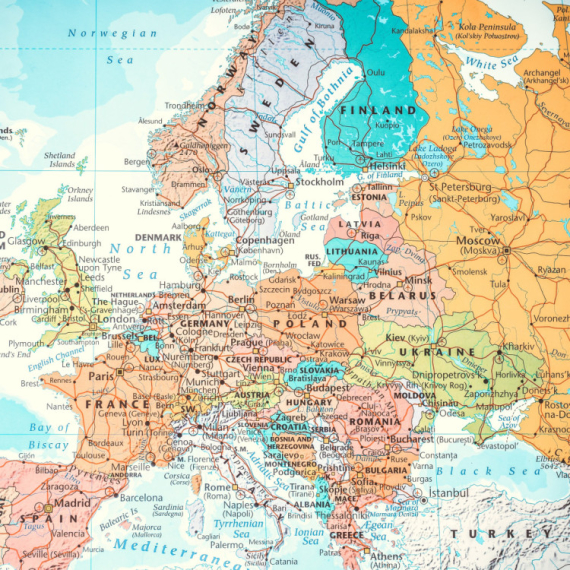"U.S. pressuring Serbia to lift ban on GMOs"
Unless Serbia changes its laws prohibiting genetically modified food, the country will fail to join the World Trade Organization (WTO).
Monday, 24.12.2012.
16:13

BELGRADE Unless Serbia changes its laws prohibiting genetically modified food, the country will fail to join the World Trade Organization (WTO). Not only that, but such a decision would be "an obstacle to the bilateral relations between Serbia and the United States", Belgrade's Vecernje Novosti daily writes. "U.S. pressuring Serbia to lift ban on GMOs" The article also quotes U.S. embassy in Belgrade official Victoria Nibarger as saying that the reason why fodder and consequently meat is "much more expensive in Serbia" - is that GMOs are banned from entering our country. However, domestic experts have different opinions on whether the legislation should be changed, and GMOs allowed on Serbian soil. The Ministry of Trade is "appealing for the trade in these goods to be allowed, and only at a later date to limit the entry of genetically modified food", according to the newspaper. Assistant Minister Bojana Todorovic was quoted as saying that "nobody is asking us to import GMOs, but we must not prohibit them either, in order to join the WTO". She also had another suggestion: "Let's cancel the ban on trade and import, and then impose a restrictive policy, that will not let everything through. It's like that in Switzerland and Russia." But Faculty of Agriculture professor Miladin Sevarlic says that the degree to which GMOs are unsafe is evident in the fact the United States will not take responsibility for the consequences of consumption of food produced in this way: "Even the U.S. did not sign an additional protocol on compensation of damage, by which they would have guaranteed (the safety of) their GMOs. The European Bank for Reconstruction and Development set aside USD 40mn for risks of American genetically modified food companies in the Balkan market, which shows how much it means to them to enter our market at any price." Experts of the Corn Institute in Zemun Polje near Belgrade are at the same time stressing that Serbia has excellent conditions to produce natural foods - the kind that will "soon be highly prized". "We have sufficient possibilities to make use of our domestic potential, since the price of organic food is only set to grow. For those countries that are already buying GMOs, Serbia will certainly be no competition," the institute's Zivota Jovanovic noted. Meanwhile, Chairwoman of the Parliament Committee on Environmental Protection Milica Vojic-Markovic has stated that if the ban on genetically modified organisms were to be lifted, Serbia's food quality institutes would face ruin. "Companies that bring genetically modified food will also bring with them completely new technology. They will not need our experts and our institutes will shut down, because GMOs destroy all other techniques, and the yield that is natural," Vojic-Markovic warned. (scx.hu, stock) Vecernje novosti
"U.S. pressuring Serbia to lift ban on GMOs"
The article also quotes U.S. embassy in Belgrade official Victoria Nibarger as saying that the reason why fodder and consequently meat is "much more expensive in Serbia" - is that GMOs are banned from entering our country.However, domestic experts have different opinions on whether the legislation should be changed, and GMOs allowed on Serbian soil.
The Ministry of Trade is "appealing for the trade in these goods to be allowed, and only at a later date to limit the entry of genetically modified food", according to the newspaper.
Assistant Minister Bojana Todorović was quoted as saying that "nobody is asking us to import GMOs, but we must not prohibit them either, in order to join the WTO".
She also had another suggestion:
"Let's cancel the ban on trade and import, and then impose a restrictive policy, that will not let everything through. It's like that in Switzerland and Russia."
But Faculty of Agriculture professor Miladin Ševarlić says that the degree to which GMOs are unsafe is evident in the fact the United States will not take responsibility for the consequences of consumption of food produced in this way:
"Even the U.S. did not sign an additional protocol on compensation of damage, by which they would have guaranteed (the safety of) their GMOs. The European Bank for Reconstruction and Development set aside USD 40mn for risks of American genetically modified food companies in the Balkan market, which shows how much it means to them to enter our market at any price."
Experts of the Corn Institute in Zemun Polje near Belgrade are at the same time stressing that Serbia has excellent conditions to produce natural foods - the kind that will "soon be highly prized".
"We have sufficient possibilities to make use of our domestic potential, since the price of organic food is only set to grow. For those countries that are already buying GMOs, Serbia will certainly be no competition," the institute's Života Jovanović noted.
Meanwhile, Chairwoman of the Parliament Committee on Environmental Protection Milica Vojić-Marković has stated that if the ban on genetically modified organisms were to be lifted, Serbia's food quality institutes would face ruin.
"Companies that bring genetically modified food will also bring with them completely new technology. They will not need our experts and our institutes will shut down, because GMOs destroy all other techniques, and the yield that is natural," Vojić-Marković warned.



























































Komentari 25
Pogledaj komentare